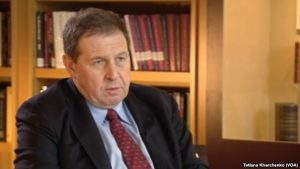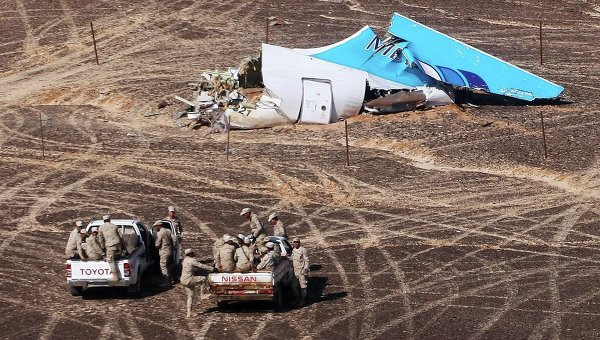Now that most experts have concluded that the Airbus A321 plane of the Russian airline Kogalymavia was brought down as the result of a bomb explosion, Andrey Illarionov says, it is time to ask two more difficult questions: who destroyed the plane? And what did those who did so hope to achieve?

There are essentially two answers that have been offered in response to these questions: It was ISIS or it was someone else, although there is the additional possibility that ISIS and non-ISIS in this case are “to a large extent, one and the same organization,” the Moscow analyst says.
The arguments on behalf of the conclusion that ISIS is to blame have been frequently pointed out, but the arguments that someone else was behind the terrorist act have not been equally broadly considered, Illarionov says. But there are four that should be considered seriously:
- First, prior to this time, “ISIS had not been involved in this type of terrorist action.”
- Second, ISIS did not react to the bombing of its locations by the international coalition headed by the US. Why should it have reacted in this way only to Russian actions?
- Third, the ISIS declaration taking responsibility “looks extraordinarily doubtful.” Indeed, the video clip in which it was contained appears to be “an obvious fake.”
- And fourth, Russian planes had not bombed ISIS positions but rather those of its opponents.
There is another factor that needs to be considered as well, Illarionov says, and that is the appearance of statements that are so obviously disinformation that their discrediting has the effect of discrediting those who have disseminated them, including Al Jazeera’s report about a bomb loaded on the plane in St. Petersburg, and a report about a supported MI-6 operation.
After such reports are discredited, the Moscow analyst continues, “it will become much more difficult to speak about responsibility” lying with any non-ISIS group even though these reports may contain within themselves “important elements of real story of what took place in fact.”
Illarionov points out that another clue about the case is provided by “the radical change of the Kremlin’s position regarding the terrorist act between November 2 and November 6.” Clearly, the Russian leadership was caught off guard by the ability of the US and UK to investigate the tragedy from a distance.
After the reports by British investigators, Vladimir Putin called the British prime minister and what he heard clearly “did not please” the Kremlin leader. Putin then convened a special meeting of the Russian Security Council and “radically” changed Moscow’s approach by stopping flights to and from Egypt and beginning the evacuation of Russian tourists.
It appears, Illarionov continues, that the British leader made the Russian leader “a proposal which turned out to be difficult to reject. At least in words.” And there is another point that should not be neglected: none of the Western government reports about the shooting down of the plane identified ISIS as being to blame.




